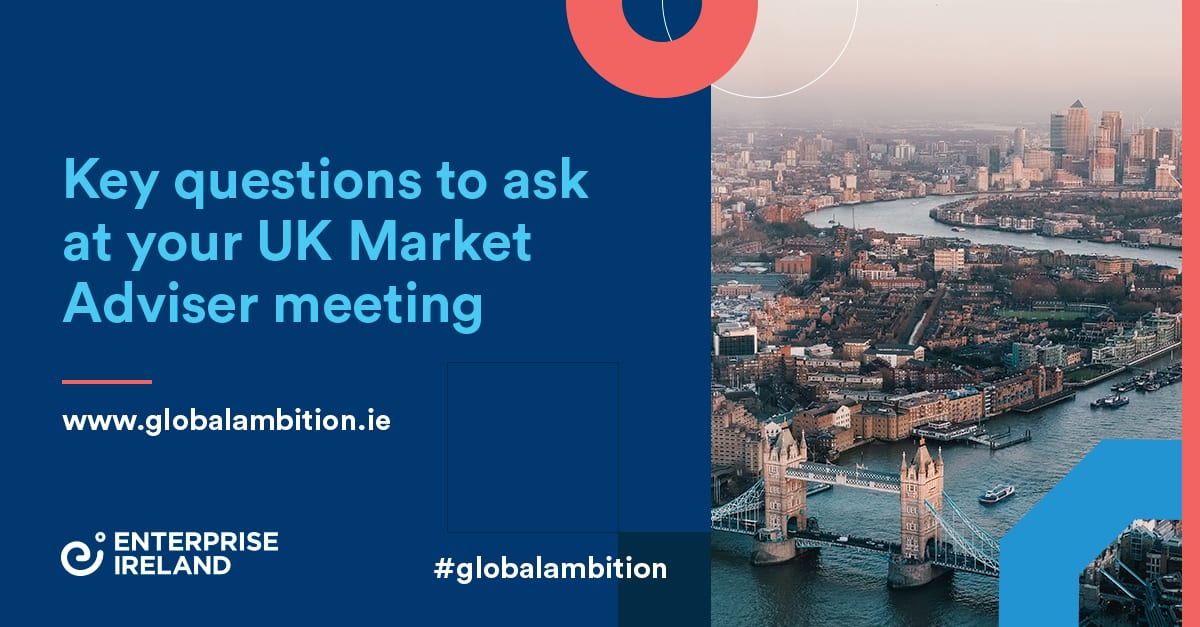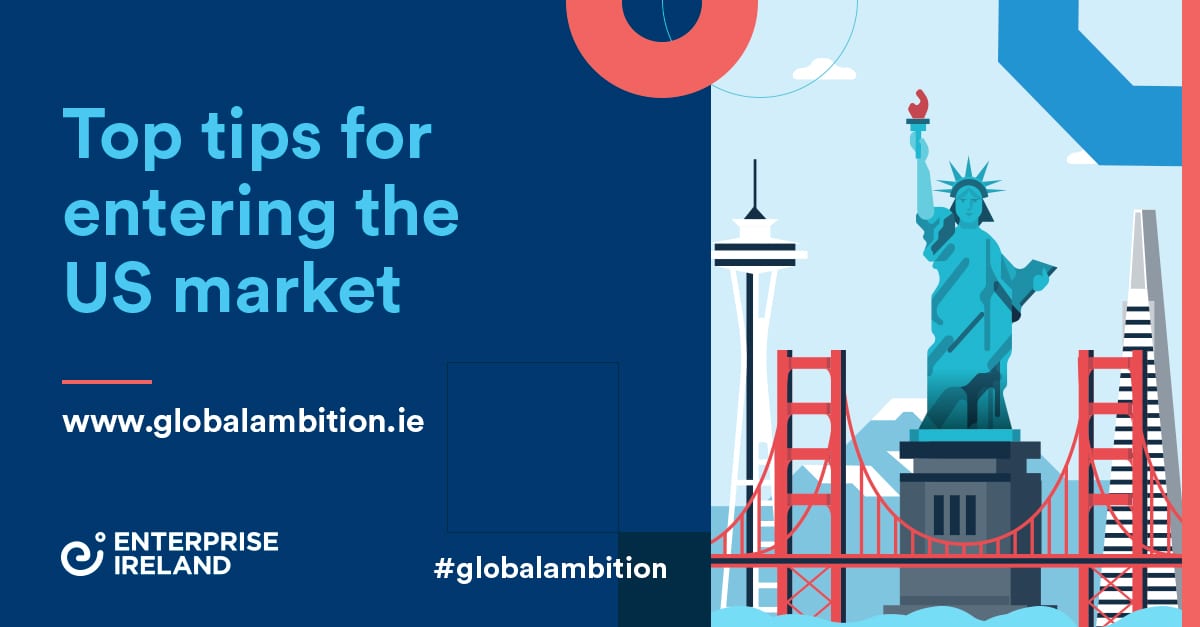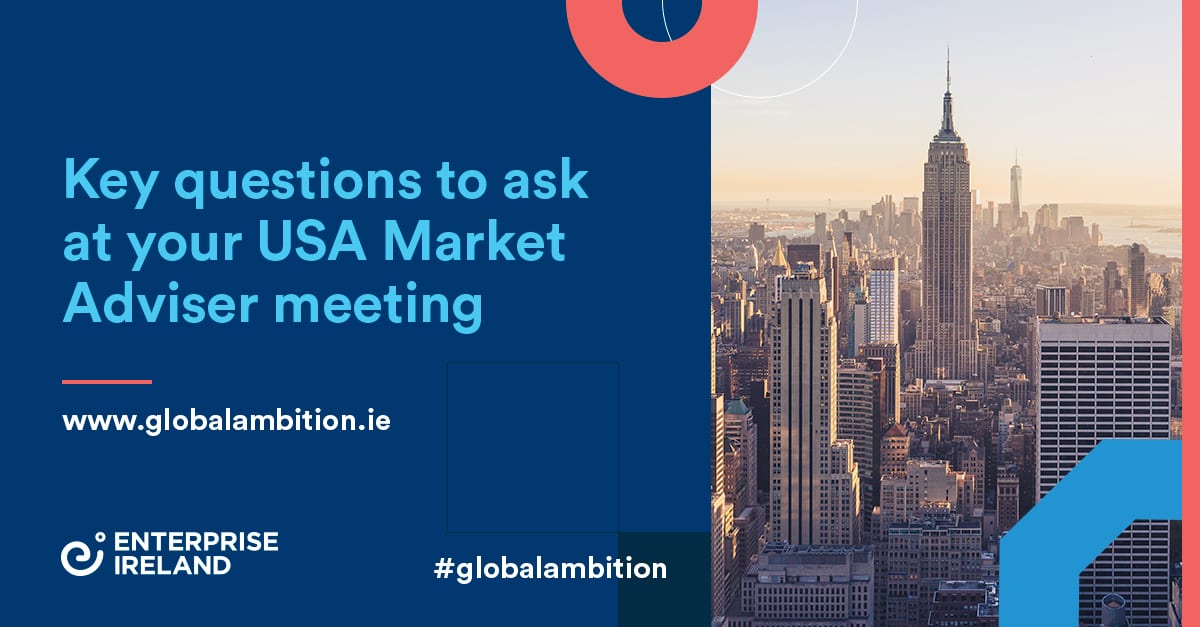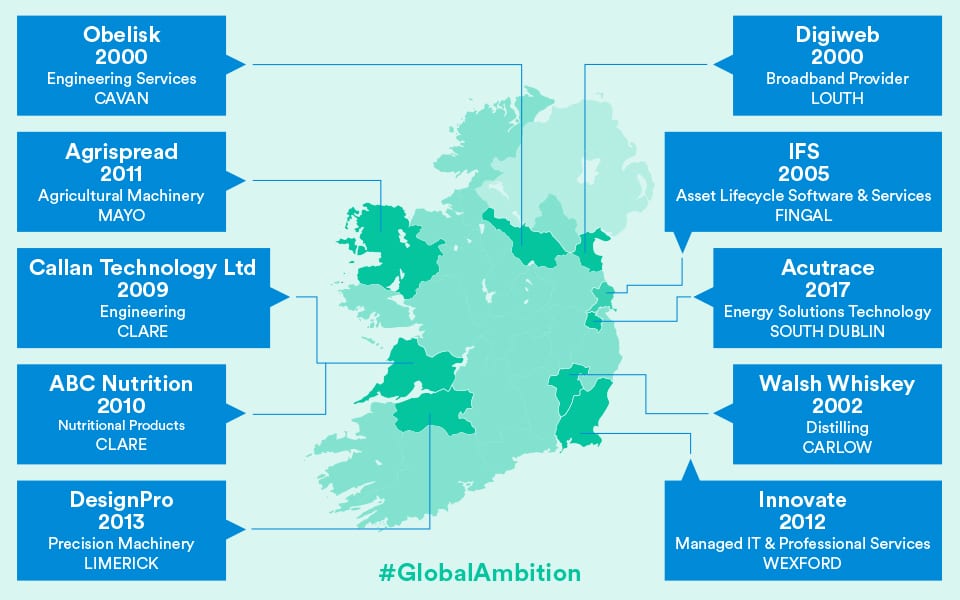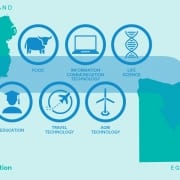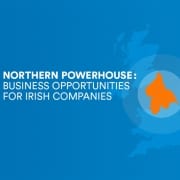For Irish medtech suppliers, few opportunities are more attractive than successfully breaking into the US market. But doing so is not always easy.
That isn’t just because the US medtech market is fiercely competitive. It’s also a matter of navigating a supply chain environment which is radically different to that familiar in Ireland.
Enterprise Ireland recently hosted a knowledge event aimed at helping Irish suppliers to prepare for entering the market. Dave Walsh, Director of Supply Chain Administration at the Boston’s Children Hospital, and Charlie Miceli, VP Network Chief Supply Chain Officer at the University of Vermont Health Network, shared insider insights on what US hospitals expect from potential partners.
Understand the role of supply chain
As an Irish supplier, you should begin by understanding the landscape and, importantly, how communication, collaboration and relationship building are more important than what Dave described as “the hot pitch”.
“If this isn’t a need we have right now, we’re going to tell you,” he explained. “If the opportunity isn’t there right now, but we think we’re going to need it in six months, we’re going to keep in touch with you.”
Establishing an introduction is based on networking and understanding that, as long as a deal is mutually beneficial, business can inevitably be done.
“We’re a team, we all work together. We want to work with you if there’s a benefit on both sides.”
Get to know different types of hospitals and procurement methods
Buying in the US market usually takes place either directly, when a hospital or health network deals with distributors and suppliers, or via a group purchasing organisation (GPO), in which smaller systems pool together to help them buy at scale.
While the promise of bigger orders can make large networks and GPOs attractive, their scale can also force them to be more risk-averse, so that sometimes it is more beneficial for Irish companies to work directly with smaller hospitals.
“Getting in at group level can reap huge rewards. There are six hospitals in the University of Vermont Health Network,” explained Charlie. “But innovation can sometimes take place at smaller hospitals.”
Make sure you have boots on ground
As working with a supplier on another continent can be perceived less favourably than local alternatives, perceptions of risk must be minimised for potential buyers.
“Being Irish can raise questions,” Dave said, “‘It’s a good quality product, but what if we have problems?’”
The most effective solution is also the most straightforward: to be present in the US, and available for regular meetings with key stakeholders. While that can mean frequent flights, it is also often essential to success.
US hospitals and GPOs will often expect to meet the boss, and just not their representative or distributor. The founder and head of your organisation will bring a uniquely intimate knowledge of the solution, and their involvement is also crucial to the collaborative approach required by US supply chains.
Consider your first move
While your first interaction is crucial, it will also depend on where your business is in its growth pattern. Begin by determining what stage you are at, and then select the time and venue to meet the right people.
“Trade groups are great,” explained Dave. “Whether national or smaller, such as regional meetings, they’re all worthwhile. I can meet 50 people in two days at these events. It could take an entire year at the hospital to achieve that.”
And while getting a slot at some trade shows can be expensive, ‘reverse expos’ – in which buyers occupy stands and are approached by suppliers, rather than the more traditional format – offer an increasingly popular approach to networking.
“Is it worth investing for a small company? A booth can be pricey but get into a reverse expo with the right plan and it could easily become money well spent.”
Consider your reimbursement model
Frustratingly for suppliers, there is little consensus on how the reimbursement model may change with the rise of the Internet of Things (IoT) and subscription models.
However, it is a matter of ‘when’ rather than ‘if’ things will change, and the best advice for now is to monitor the market closely to prepare for an impending shift.
“If change happens, it will happen quickly,” commented Charlie.
Avoid the ‘circular wheel’
The selling cycle in the US medtech market can be very long – approximately six months for a defined need, followed by a vetting cycle of three to six months, and longer again if a solution is not in response to a specific requirement.
For that reason, finding the right person at the right stage is crucial. Every time you’re passed sideways to another department or another contact can add days or weeks to an already lengthy process.
There is one simple way to avoid ending up on what supply chain calls the ‘circular wheel’: ask the question of how to engage.
“Try to understand what the roles are,” said Dave. “Ask us the question, we’ll find you the right person to talk to at the right stage.”
Take the heavy lifting off IT
“As everything becomes more digital, there is more pressure on IT departments in hospitals,” Charlie noted. “So you need to be able to take the heavy lifting off IT.”
At a minimum, it means that producers of digital products should be able to demonstrate an intimate working knowledge of technical details, from the interface standard to security risks and mitigations.
But beyond that, it may also have implications for companies that rely on free pilot schemes in healthcare facilities as part of their sales process. Such is the time and cost associated with implementation, that they must also be sold convincingly to make the offer worthwhile.
“A pilot has to go through the governance process, because IT has bigger cost growth than other departments,” added Charlie. “Free pilots do happen, but not without work. Implementation will be costly.”
Know your suppliers
There are few, if any, medtech suppliers who do not rely in some way on third-party suppliers. It’s crucial to recognise that, as the producer, you hold full responsibility for who they are, how they work, and their components or contributions to your end product.
“You’re accountable for everyone who feeds into your product,” explained Dave.
“It’s important to bear in mind that customs, standards, specs, and so on will vary from region to region.”
Use the data you have
One of the perceived barriers to entry into the US market is a lack of data, particularly in instances where it’s difficult to implement an initial pilot.
While local data is always preferable, due to differences in health system structures, European and Irish data can nonetheless make an incredibly strong contribution to the case. In fact, depending on the industry, it can even offer an advantage if it happens to be one where the EU is seen as a leader.
“Sterilisation, for instance, is more advanced in EU than the US,” said Charlie. “And the latency is five to seven years, due to testing and so on. So the demonstration of reliability and data from successful European adoption can make all the difference.”
Ireland enjoys a unique advantage in trading with the US and is Ireland’s second largest export market. Learn more about entering the US market here.
